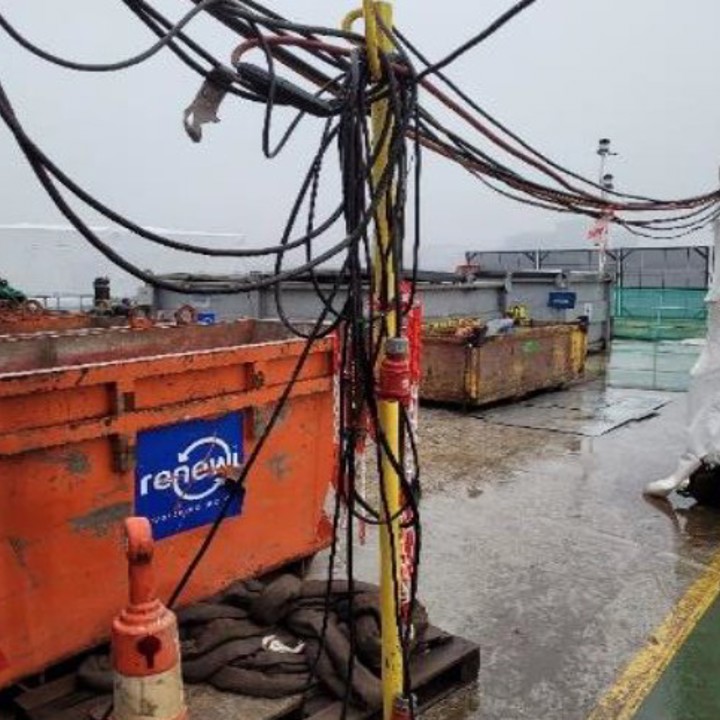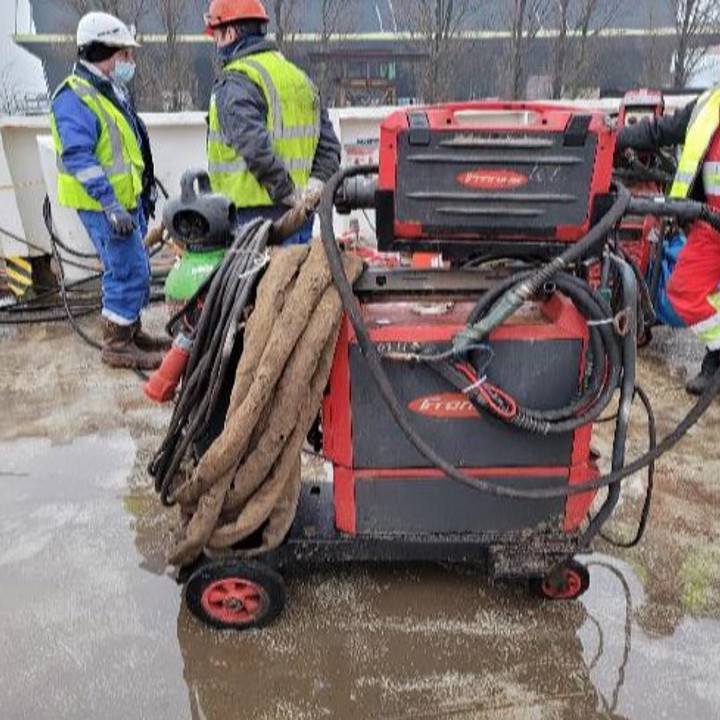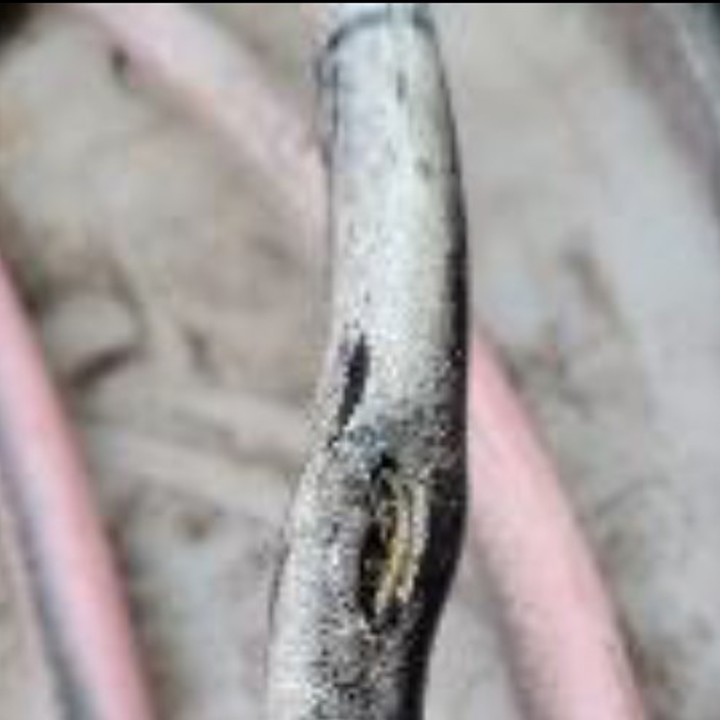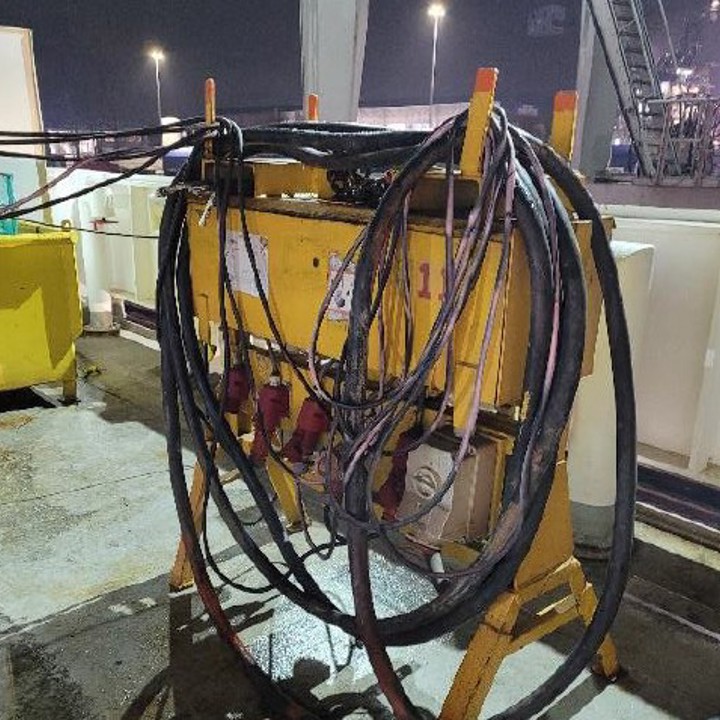Shipyard worker receives electrical shock
- Safety Flash
- Published on 8 April 2021
- Generated on 22 February 2026
- IMCA SF 10/21
- 3 minute read
Jump to:
A shipyard worker received a serious electrical shock onboard a vessel in dry dock.
What happened?
The incident occurred when a shipyard welding team were setting up equipment outside on the main deck.
A welder was uncoiling a 380V extension lead which would be used to provide power to his welding plant. One end of the extension cable was connected to the shipyard electrical distribution box located on the main deck and the other was coiled up and suspended on a nearby cable pole.
As he routed the cable the welder had to walk through the pools of water which had gathered due to the inclement weather, to get the cable positioned correctly near his welding machine. Whilst carrying out this task, his hand came into contact with a damaged section of the extension cable which resulted in him receiving an electric shock.
As a result of the electric current passing through his body he was unable to release his grip on the cable. A nearby colleague heard him cry out and took decisive action to kick him clear of the cable. This was enough to release the cable from his hand. He reported to the local hospital for cautionary checks and no abnormalities were noted, and was released that evening.

Power supply extension cable

Welding plant

Damaged section of three-phase cable

Shipyard electrical distribution box
What went wrong / what were the causes?
The following findings were identified:
- The electric cable outer sheathing was damaged with the inner cores exposed. The plug socket end cap was also broken off.
- The equipment was not visually inspected prior to use.
- No residual current devices (RCDs) were installed in the electrical distribution boxes. (The shipyard was unaware of the availability of RCDs that wouldn’t ‘trip’ all the time during welding operations.)
- The welder's gloves were wet as a result of the inclement weather.
Actions
- Ensure daily pre-use inspections are performed on all work equipment.
- Ensure any defective equipment is immediately removed from site and quarantined.
- Ensure appropriate protection devices are fitted to electrical circuits.
- Emphasise the importance of knowing how to isolate equipment in the event of an emergency.
- Ensure risk assessments consider the effects of inclement weather and that suitable controls are identified and implemented.
Members may wish to refer to:
- IMCA HSS032 Guidance on safety in shipyards
- Short video: Electrical hazards
Related Safety Flashes
-
IMCA SF 25/20
25 August 2020
-
-
IMCA SF 13/19
4 June 2019
-
IMCA SF 24/18
30 October 2018
-
IMCA Safety Flashes summarise key safety matters and incidents, allowing lessons to be more easily learnt for the benefit of the entire offshore industry.
The effectiveness of the IMCA Safety Flash system depends on the industry sharing information and so avoiding repeat incidents. Incidents are classified according to IOGP's Life Saving Rules.
All information is anonymised or sanitised, as appropriate, and warnings for graphic content included where possible.
IMCA makes every effort to ensure both the accuracy and reliability of the information shared, but is not be liable for any guidance and/or recommendation and/or statement herein contained.
The information contained in this document does not fulfil or replace any individual's or Member's legal, regulatory or other duties or obligations in respect of their operations. Individuals and Members remain solely responsible for the safe, lawful and proper conduct of their operations.
Share your safety incidents with IMCA online. Sign-up to receive Safety Flashes straight to your email.